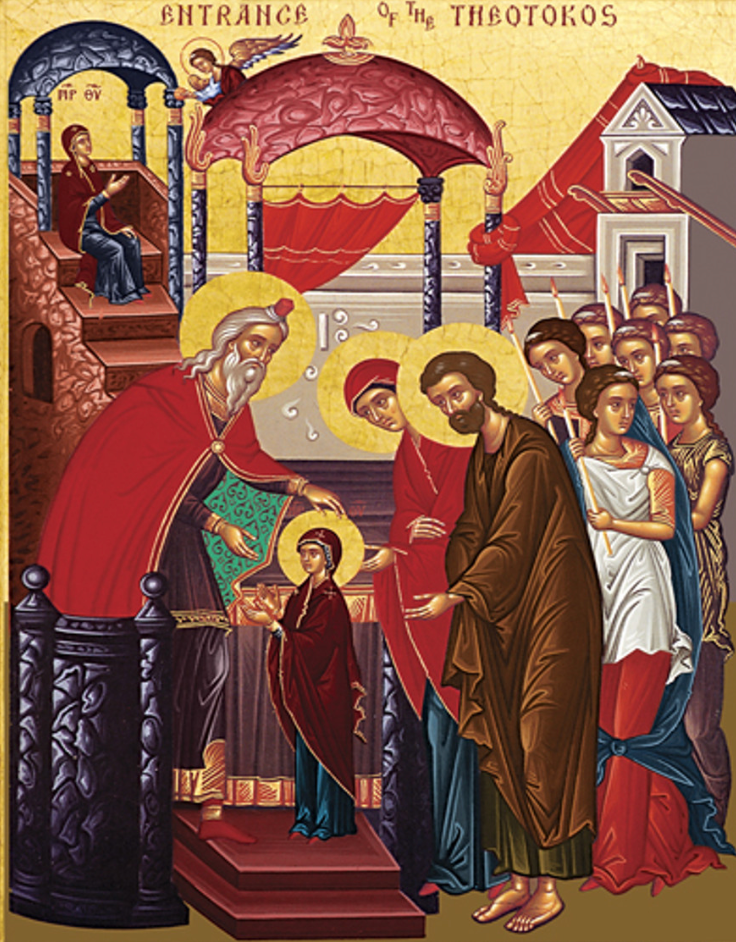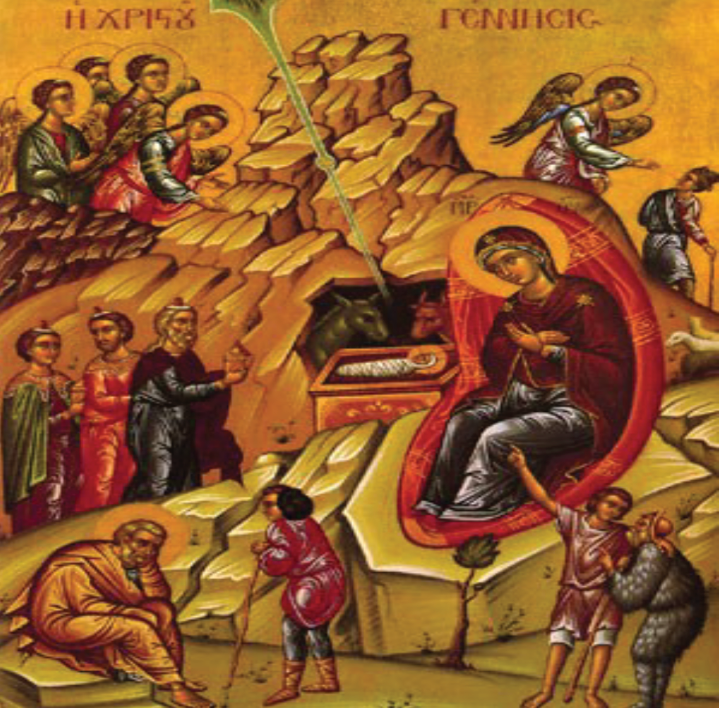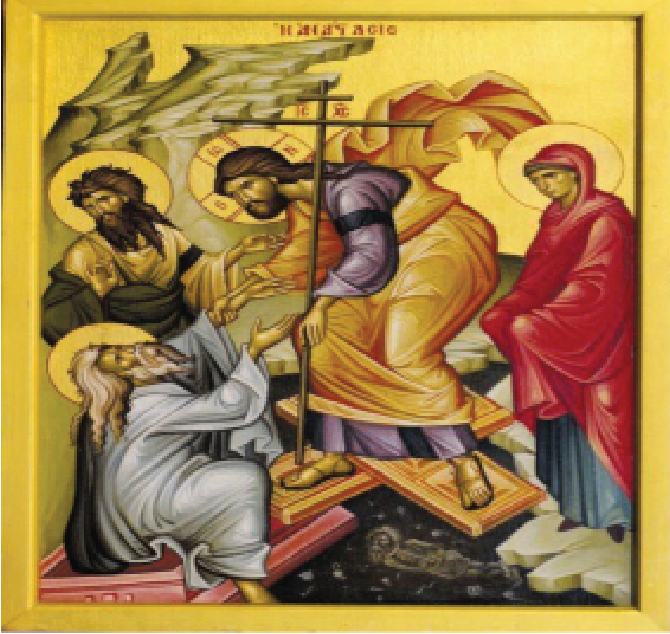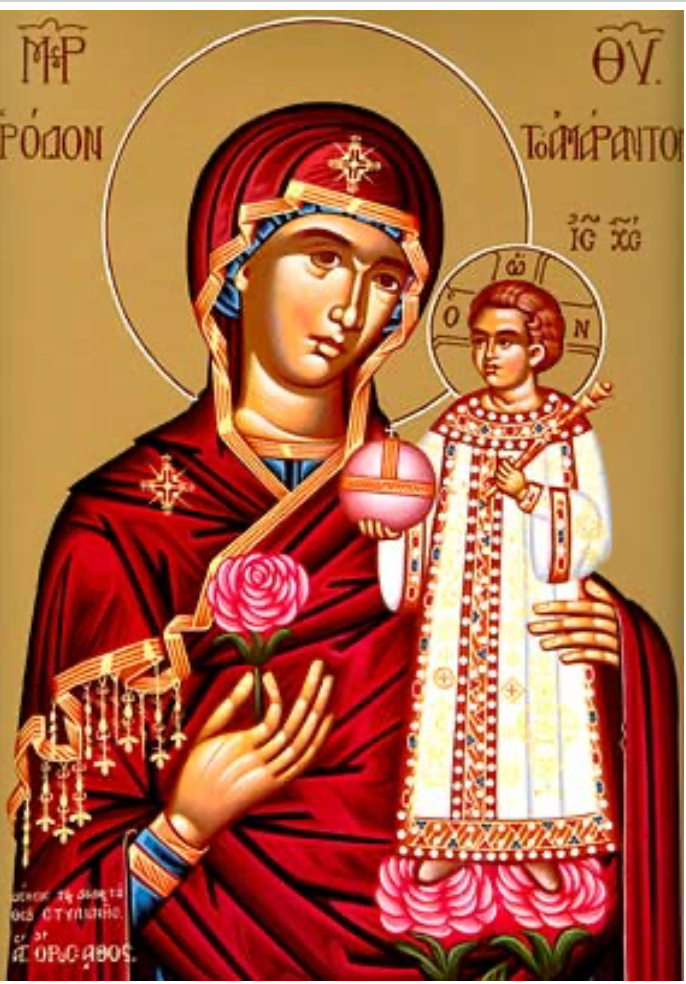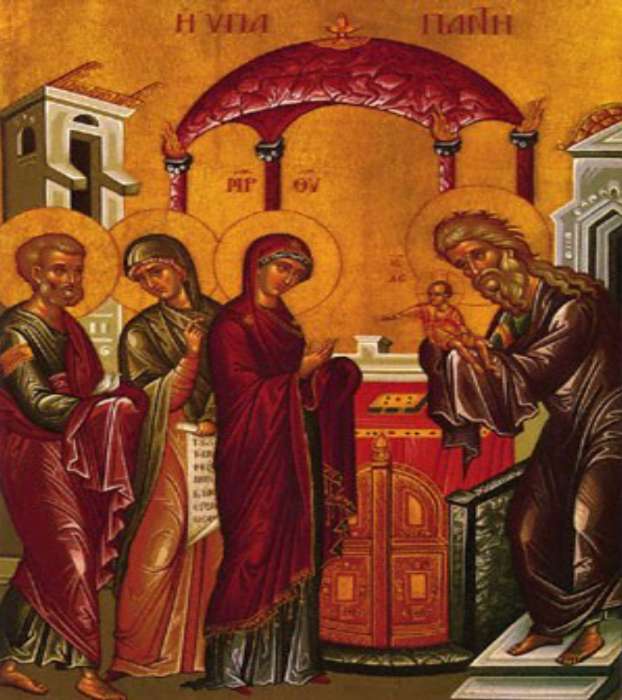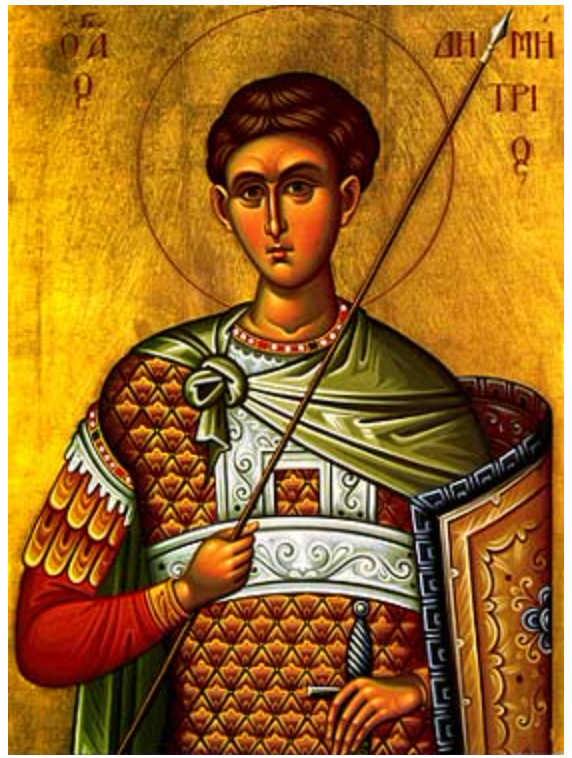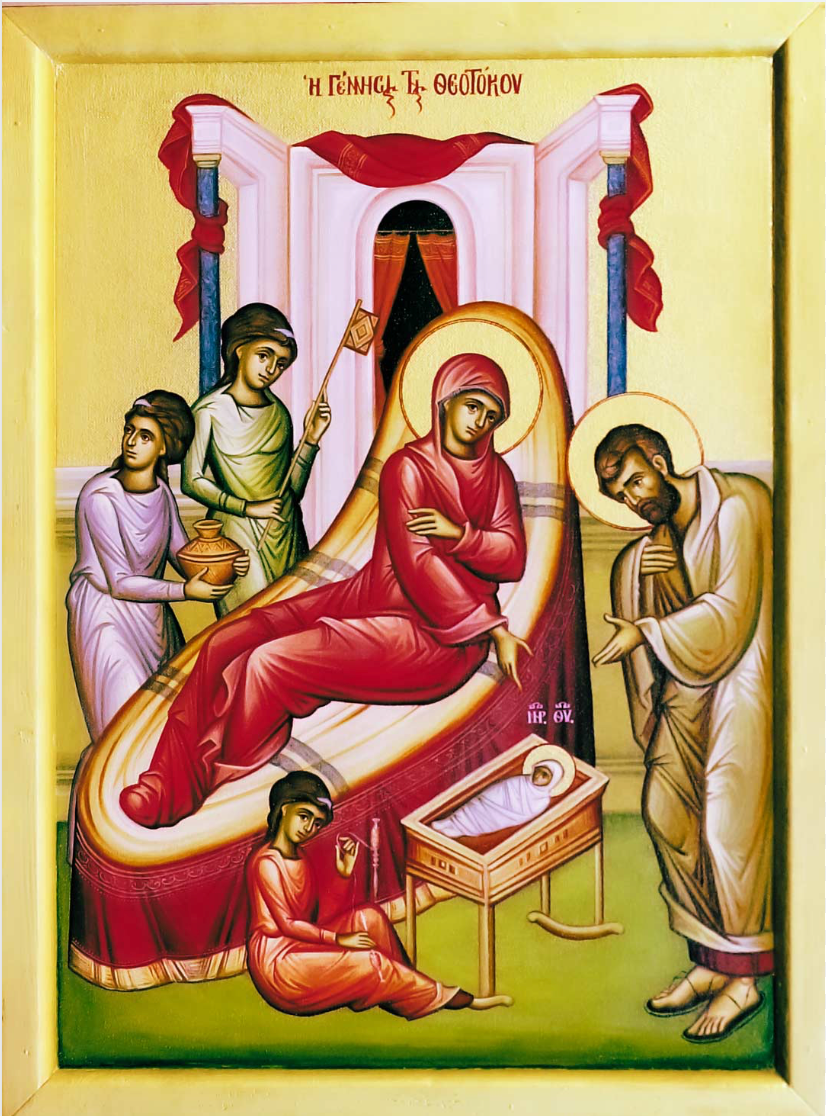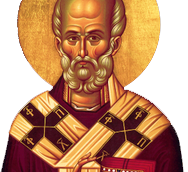November 2, 2025
November 21 Introduction The Feast of the Entrance into the Temple of Our Most Holy Lady the Theotokos and Ever-Virgin Mary is celebrated on November 21 each year. The Feast commemorates when as a young child, the Virgin Mary entered the Temple in Jerusalem. Protevangelion Story The birth and early life of the Virgin Mary is not recorded in the Gospels or other books of the New Testament, however this information can be found in a work dating from the second century known as the Book of James or Protevangelion. When Mary was three years old, Joachim and Anna decided that the time had come to fulfill their promise and to offer her to the Lord. Joachim gathered the young girls of the neighborhood to form an escort, and he made them go in front of Mary, carrying torches. Captivated by the torches, the young child followed joyfully to the Temple, not once looking back at her parents nor weeping as she was parted from them. The holy Virgin ran toward the Temple, overtaking her attendant maidens and threw herself into the arms of the High Priest Zacharias, who was waiting for her at the gate of the Temple with the elders. Zacharias blessed her saying, "It is in you that He has glorified your name in every generation. It is in you that He will reveal the Redemption that He has prepared for His people in the last days." Then, Zacharias brought the child into the Holy of Holies—a place where only the High Priest was permitted to enter once a year on the Day of Atonement. He placed her on the steps of the altar, and the grace of the Lord descended upon her. She arose and expressed her joy in a dance as wonder seized all who saw this happen. The Virgin Mary dwelt in the Temple for nine years until, reaching an age for marriage, she was taken from the Temple by the priests and elders and entrusted to Joseph as the guardian of her virginity. The Entrance of the Theotokos into the Temple signifies her total dedication to God and her readiness for her future vocation as the Mother of the Incarnate Lord. This is a feast of anticipation. As honor is shown to Mary, the faithful are called to look forward to the Incarnation of Christ, celebrated in a little more than a month by the Feast of the Nativity on December 25. Icon of the Feast The icon of the feast tells the story of Mary's entry into the Temple. The High Priest, Zacharias, is in his priestly robes standing on the step of the Temple. His arms are outstretched, ready to greet and receive the Virgin. Mary is shown as a small child, standing before Zacharias with her arms reaching up to him. In some icons the young maidens who served as her escort are depicted standing behind her. Also, we see her parents, Joachim and Anna, offering their child to God and His divine service. In the upper center portion of the icon, the Virgin is seated on the steps of the Holy of Holies. An angel is there, attending to the one chosen by God to bring the Savior into the world. Orthodox Christian Celebration of the Feast of the Entrance of the Theotokos The Feast of the Entrance of the Theotokos is celebrated with the Divine Liturgy of Saint John Chrysostom which is conducted on the morning of the Feast and preceded by a Matins (Orthros) service. A Great Vespers is conducted on the evening before the day of the Feast. Scripture readings for the Feast are the following: At Vespers: Exodus 40:1-5 , 9-10, 16, 34-35; I Kings 7:51, 8:1, 3-4, 6-7, 9-11; Ezekiel 43:27—44:4. At the Matins: Luke 1:39-49, 56. At the Divine Liturgy: Hebrews 9:1-7; Luke 10:38-42; 11:27-28. Resources Festival Icons for the Christian Year by John Baggley (Crestwood, NY: St. Vladimir's Seminary Press, 2000), pp. 16-20 The Festal Menaion. Translated by Mother Mary (South Canaan, PA: St. Tikhon’s Seminary Press, 1969) pp. 51-52 The Incarnate God: The Feasts of Jesus Christ and the Virgin Mary, Catherine Aslanoff, editor and Paul Meyendorff, translator (Crestwood, NY: St. Vladimir’s Seminary Press, 1995) The Synaxarion: The Lives of the Saints of the Orthodox Church, Vol. 2, compiled by Hieromonk Makarios of Simonos Petra and translated from the French by Christopher Hookway (Chalkidike, Greece: Holy Convent of the Annunciation of Our Lady, 1999) pp. 193-196. Icon of the Entrance of the Theotokos to the Temple presented in the page header and in the article introduction provided by Athanasios Clark and used with permission. Icon of the Entrance of the Theotokos to the Template presented in the "Icon of the Feast" section provided by Theologic Systems and used with permission.
